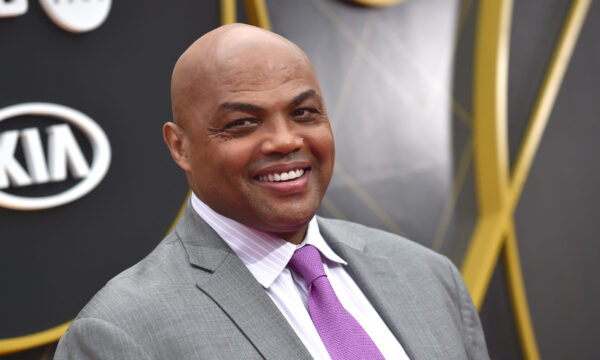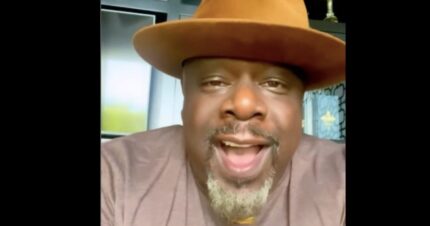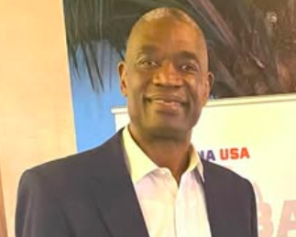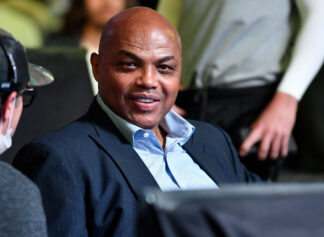NBA legend Charles Barkley appeared in April on “Club Shay Shay” with Shannon Sharpe and talked about his life and career, growing up in Alabama, and becoming one of sports’ most recognizable figures.

A key topic Barkley addressed was the importance of athletes being smart about protecting their wealth. He emphasized the necessity of guarding one’s finances by avoiding the common pitfall of financially supporting family and friends by putting them on the payroll, what he sees as not only an unnecessary expenditure but a dangerous one to have that is rooted in survivor’s remorse.
Mom’s Advice About Money
Part of this thinking about money and relationships was developed almost 30 years ago in 1996, while on the Team USA Olympic basketball team.
Barkley recalled overhearing a conversation between his teammate Grant Hill and Hill’s mother, Janet Hill. Despite her son’s lucrative NBA career, Janet Hill mentioned she had to return to work after a short visit.
The 11-time All-Star claims he was shocked that Ms. Hill still would be working even though her son was so rich. The basketball mom was quick to deconstruct that thinking.
“Do not start taking care of your family and friends. They never gonna stop, and it’s gonna ruin all your relationships,” Barkley remembers Janet Hill advising him. “When you start giving people money, they never gonna ask for money [just] one time. No matter what you do for them, the first time you tell them no, they hate you.”
“It was a tough and painful lesson for me,” Barkley said.
Grant Hill’s parents are Janet Hill and four-time Pro Bowl NFL running back Calvin Hill, a Yale graduate who won a Super Bowl with the Dallas Cowboys in 1971. Calvin Hill would serve on a variety of corporate boards after his playing career ended, and Grant Hill, unlike some NBA players, entered the NBA as a player coming from a background of relative privilege.
During the “Club Shay Shay” interview, Barkley admitted that not all of the $60 million he earned during his basketball career was wasted on others; he also spent lavishly trying to live the high life of a professional All-Star.
“I first was an idiot when I got my money,” Barkley confessed, explaining his youthful splurges on luxury cars.
He now advises young athletes to avoid such pitfalls, teaching them, “I have been in your situation. I wasted money on cars. When you waste money on cars, you’re really just trying to impress other people.”
The “Inside the NBA” host, who has made more money as a sports analyst and talk show host than as a player, says he is now in the place that one of his idols was to him when he was a newbie in the league. Julius “Dr. J” Erving, one of Barkley’s teammates with the Philadelphia 76ers, was the first to counsel him against excessive spending on cars.
“How many of those cars can you drive at the same time?” Erving would tease Barkley about his growing fleet of vehicles.
“The problem is – it’s not the fact that you can’t afford that car – it’s the fact that the $300,000 you spent on that Bentley, if you bought a car for $70,000, $80,000, you would have had $200,000 more in the bank and it would have been growing and growing,” Barkley remembers Erving advising him.
Broke Ballers
This tendency to splurge and financially support family members isn’t just a relic of Barkley’s (or the NBA’s) past. It still goes on today.
The average NBA player earns just over $10 million for the 2023-2024 season, with the highest-paid player, Stephen Curry, making $51,915,615.
Fifteen players earned the league minimum of $1,119,563, according to ESPN.
Despite these substantial earnings, a 2009 Sports Illustrated report estimated that 60 percent of NBA players file for bankruptcy or face financial stress within two years of retiring. Various factors contribute to this, but Investopedia points to overspending and a lack of financial literacy and planning as key reasons why some iconic athletes end up broke.
Wealth manager Humble Lukanga explained to the Washington Post in 2021, “There’s a pressure that comes with being the African-American success story.”
“You are some community’s pride and joy. And that community has protected you. That community has given you free haircuts when you couldn’t afford it. That community has sponsored your football teams, your basketball team,” he continues.
This pressure from the community is one reason why athletes feel compelled to put their people on payroll, but as Barkley advises, they must prioritize their financial security for the long term.




